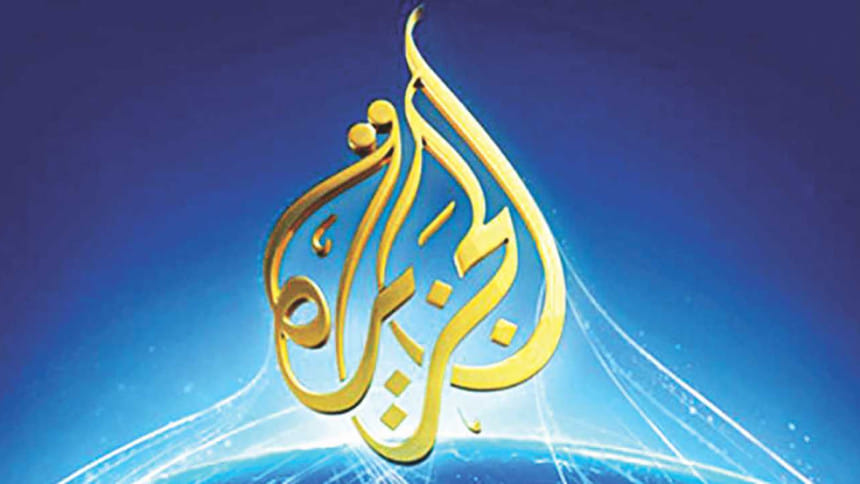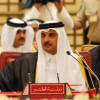It's all about Al Jazeera Arabic!

Everyone hates a free press." That was the best quote from a legendary journalist whom I admired. He was incarcerated for many years, labelled as a communist or worse, but he never wavered in his belief that a free press is the bedrock of any democracy.
Fast forward many years after his demise, and he would have been a dinosaur in the almost unrecognisable and unpredictable world of media today. People are saying the so-labelled "mainstream media" is fast becoming an alternative one.
Dissemination of news is being democratised as never before. New dynamics are changing the media companies. They have to adapt or face the consequences.
Some argue that the Internet is a seductive medium. But then the Fourth Estate is still powerful. Mainstream news is still the choice of many. There are people who still read the newspapers; news channels are still dominating the airwaves and, in fact, are more intense in ferocity and competition.
So the demand by its Arab neighbours for Qatar to close its hugely popular Al Jazeera Arabic is not at all shocking to media-watchers. When it started in 1996, AJA was something of a surprise to the Arab world: a TV station broadcast from Doha, bringing news and commentaries without fear and favour, reporting without constraint and introducing the concept of "free press" for the first time in the Arab world. It was shocking as it was an eye-opener.
Its motto, "an opinion and a counter opinion", speaks volumes of its position. It changed the media landscape entirely—thus altering the worldviews, perspectives and even the psyche of the Arab people. The Arabs were, to say the least, jolted from their slumber by new and fresh content on TV in comparison to their state-owned channels.
AJA was a dewdrop in the Arab morning, bringing freshness, boisterousness and with it excitement and awe. It was audacious, no-holds-barred and, most of all, entertaining. Its rating went sky-high and its influence among the populace was gaining momentum every single day.
Little wonder that Fouad Ajami once wrote that AJA was "the Hollywoodisation of news" in the Arab world. One media observer acknowledged the fact that AJA is "the best thing that has happened to the Arab world."
Suddenly, the Arab world sees something beyond their normal prism. It brings about new awareness and consciousness. In a region where people never see democracy at work, AJA opens a new discourse on freedom or what freedom entails. A blogger, Nehad Ismail, writing for Huffpost, opined that "the advent of Al Jazeera was like a media earthquake that opened the gates of freedom of expression and democracy."
To say that AJA was partly responsible for the "Arab Spring" is an understatement. And yes, AJA helped topple dictators from Libya to Tunisia. And the rumblings on the Arab streets and later on, mass demonstrations, were credited to the channel.
But lest we forget, the Arab societies have been changing dramatically, too, over these last many decades. Education has played a part and exposure to the outside world too has created a fertile venue for a sea change of attitude.
More critical and assertive young Arabs are emerging. And we must also not forget the role of social media in framing the protest in major Arab capitals during the infamous Arab Spring.
The role of people's activism using social platforms, too, must not be forgotten. But it is important to understand the impact of technologies—in the form of social media and AJA—in fanning Arabs' discontent.
It is about a war of narratives in the Middle East. But the fact is, AJA is not all rosy and clean. It has its problems too.
It was labelled as one-sided, not objective, even bigoted. It has been criticised for allegations of bias and its penchant for allowing controversial figures to appear on the screen to boost ratings. Every country in the Arab world has a grudge against AJA.
So, understandably, AJA is getting everyone among the ruling elites nervous. It all boils down to AJA's impact and outreach. The rest, I believe, is just academic.
The closure of AJA was the sixth item, out of 13, bullet-pointed by Qatar's neighbours as demands to re-establish relations between them. For Qatar, it wasn't easy to comply. It is a Catch-22 situation for them.
For its mighty neighbours, it is payback time. Nosy AJA is destroying the social fabric of Arab societies. Close, or bear the consequences. Qatar is rich but a mere dot in the Arab sphere.
We can easily find fault with AJA. It is not perfect, but it is within such imperfections that media organisations operate. If Qatar's neighbours get their way, it will be an excuse by many more regimes in the world to demand closure of news organisations for being "unfriendly" to them.
Yes, no one likes a free press, my mentor once said.
How true!
Johan Jaaffar is a journalist, editor and chairman of a media company.
Copyright: The Star/Asia News Network

 For all latest news, follow The Daily Star's Google News channel.
For all latest news, follow The Daily Star's Google News channel. 








Comments